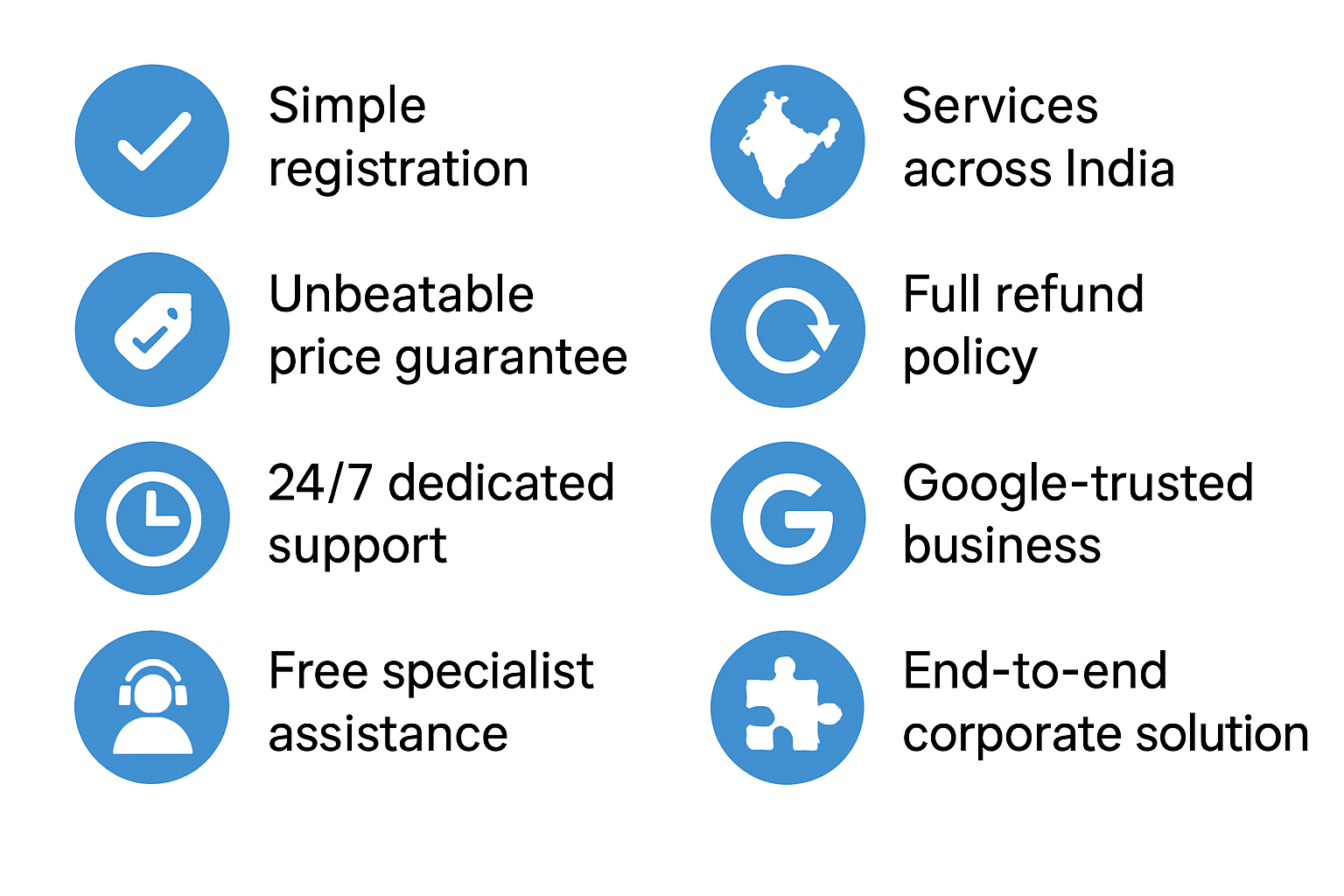India’s Largest Financial Services Platform for Your Business
![]() Office Address
Office Address
1st Floor, Green Square Market Hisar, Haryana 125001
Need Help Call Now? +91-1662-355590
- +91 881800 88600
- 121 King St. Melbourne VIC 3000, Australia
- info@mymonitrix.com
Follow Us On:
Intrinsicly evisculate emerging cutting edge scenarios redefine future-proof e-markets demand line
Gallery Posts






Working Hours
| Mone - Fri: | 09:00 - 06:00 |
|---|---|
| Saturday: | 09:00 - 12:00 |
| Sunnday | 09:00 - 04:00 |
| Monday | 09:00 - 05:00 |
- Home
- About Us
- Business Setup
- Services
- Proprietorship Registration
- Public Limited Company Registration
- Private Limited Company Registration
- One Person Company
- NGO Registration
- Section 8 Microfinance Company
- NBFC Registration
- IRDA Insurance Marketing Firm
- Nidhi Company
- Startup India Registration
- International Business Setup
- Posh Compliance
- Event based Compliance
- Change in Auditor
- Removal of Director
- Company Closure
- Change in Director
- Director KYC
- Change in Registered office
- Change in Share Capital
- Change In Object Clause
- Change Name of Company
- Appointment of Managing Director
- Issue And Transfer of Share
- Appointment of Auditor
- Appointment and Resignation of Director
- Change in Name of Company
- Change in MoA and AoA
- Registration 2
- Government Contractor Registration
- Branding
- Factory License Registration
- Restaurant Registration
- Hotel Registration
- One Star Hotel
- Two Star Hotel
- Three Star Hotel
- Four Star Hotel With Alcohol
- Four Star Hotel Without Alochol
- Five Star Hotel Without Alcohol
- Five Star Hotel With Alcohol
- Five Star Deluxe Hotel
- Bed & Breakfast (BnB)
- Guest House
- Homestay
- Causal Dining Restaurant
- Fine Dining Restaurant
- Coffee Cafe
- ZED Certificate
- FASSI Basic Registration
- CDSCO Registration
- Manufacture Cosmetics
- Dermatology & Plastic Surgery Medical Devices
- Bone Barrow cell
- General Hosiptal Devices
- Organ Preservation Solution
- Ophthalmic Medical Devices
- Cosmetics
- Drugs Manufactures in India
- Import Cosmetics
- Pacemaker
- Pain Management Medical Devices
- BP Monitor
- Dialysis Machine
- Cardiovascular Medical Devices
- BIS Registration Online
- Make In India Certificate
- Wireless Earphone
- Wireless Headphone
- Optical Disc Player With Amplifiers
- LED TVs
- LED Lights
- Laptop
- Lithium Ion Batteries
- Video Camera
- Webcam
- Batteries
- Notebook
- Scanner
- CCTV Cameras And Recorder
- Digital Camera
- Mobile And Electornic Devices
- Automobile Accessories
- Plasma TV
- BIS CRS Registration
- Bluetooth Speakers
- Household Appliances
- Patent Registration
- GeM Registration
- Import Export
- RCMC
- RCMC Board registration
- APEDA Registration
- WWEPC Registration
- Shefexil Registration
- SEPC Registration
- Carpet Export Promotion Council
- Apeda RCAC Registration
- WWEPC Registration
- MPEDA Registration
- Capexil Certificate
- Electornic And Computer Software ESC-EPC
- Cashew Export Promotion Council
- Apparel Export Promotion Council
- Chemexcil Registration
- CLE Council of Leather Export
- Indian Skill Export Promotion Council
- Texprocil Registration
- RCMC Board registration
- TAX
- IPR
- Refer to Earn
What Our Clients Say
"Their attention to detail and commitment to excellence in financial management have been a game-changer for our business."
Happy Client
"Monitrix stands out for their professionalism and deep financial knowledge. They’ve truly helped craft our success story."
Happy Client
"The team’s dedication and personalized approach have consistently exceeded our expectations. A trusted partner for all things financial!"
Happy Client



